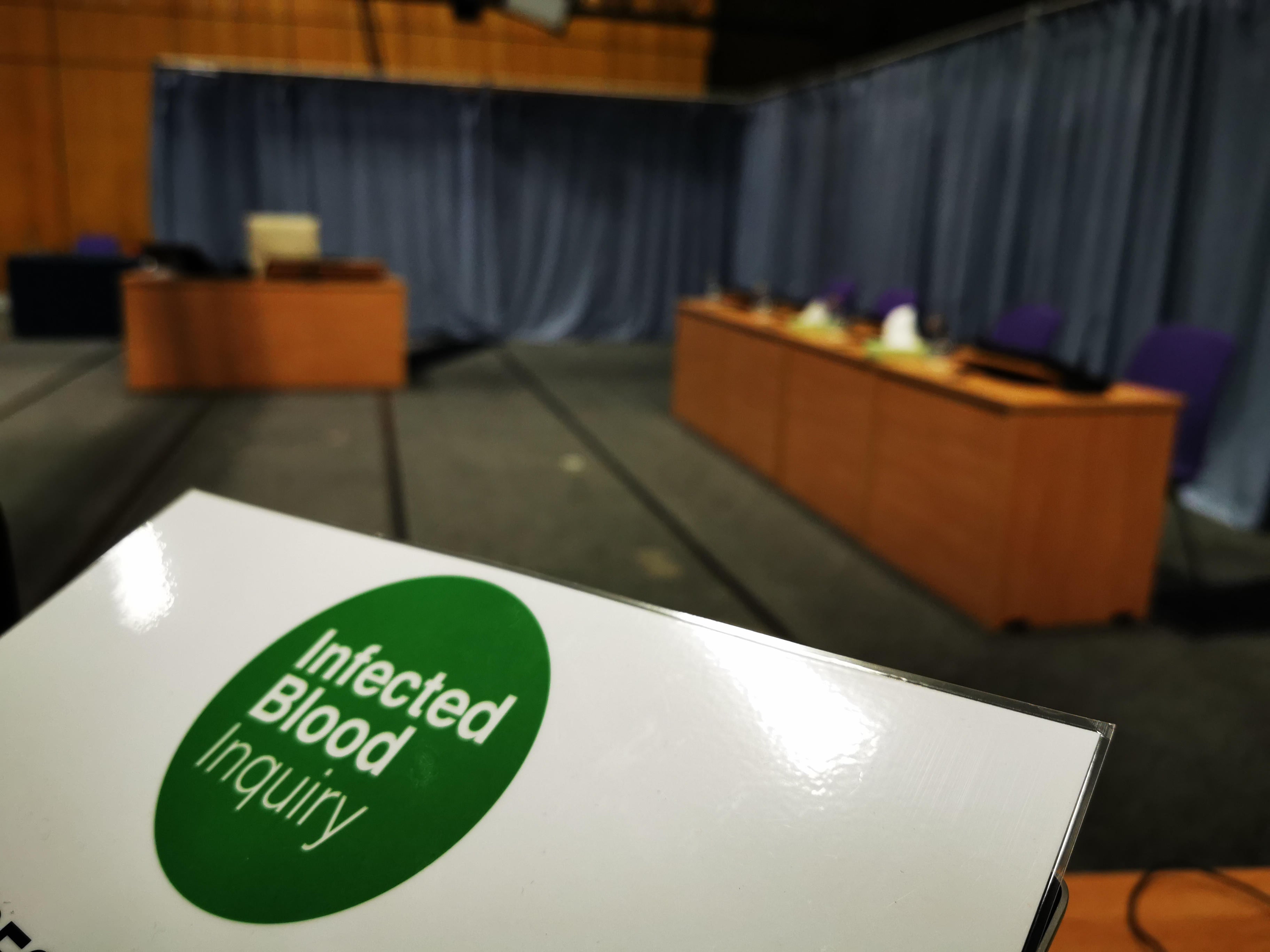£100,000 must go to infected blood victims and bereaved partners – inquiry head
The compensation should be paid ‘without delay’ to those affected, Sir Brian Langstaff wrote in an interim report.

At least £100,000 should be paid to all infected blood victims and bereaved partners across the UK, the chairman of the inquiry into the tragedy has said.
The compensation should be provided “without delay”, Sir Brian Langstaff wrote in a letter to Paymaster General Michael Ellis on Friday.
The chairman said he had made the recommendation in light of the inquiry hearing evidence of “profound physical and mental suffering” caused by the scandal.
The inquiry was established to examine how thousands of patients in the UK were infected with HIV and hepatitis C through contaminated blood products in the 1970s and 1980s.
About 2,400 people died in what has been labelled the worst treatment disaster in the history of the NHS.
In the letter, which accompanies an interim report on compassionate payments, Sir Brian said: “Having considered the submissions and reflected on the evidence this inquiry has heard of profound physical and mental suffering across a wide range of backgrounds, from a diversity of places and in a variety of personal circumstances, I considered it right that I should make this report.”
The compensation should be paid to “all those infected and all bereaved partners currently registered on UK infected blood support schemes, and those who register between now and the inception of any future scheme,” he added.
There are 2,007 core participants in the inquiry who are infected or affected, but it is not known whether all of these people will be eligible for compensation.
Research is still ongoing to reach estimates for the total number of surviving infected blood victims.
We look forward to the day when all victims of this scandal are properly compensated for their suffering and for those whose decisions led to the ruining of countless innocent lives being held to account
Sir Brian apologised to those who do not fall into either of the two categories of people included in his recommendation, but said the inquiry’s work is continuing and the question of compassionate payments remains open.
“I know that this will be disappointing for some of you who may fall into neither category and I apologise for that,” he said.
The Government does not have to accept Sir Brian’s proposal, but in 2021 Matt Hancock said it would “of course” pay compensation if the inquiry recommended it.
The then-health secretary told the inquiry the Government had a “moral responsibility” to address the impact of the scandal.
A Government spokesperson said it would consider the former High Court judge’s report with “the utmost urgency” and “respond as soon as possible”.
“The Government is grateful to Sir Brian Langstaff for his interim report regarding interim compensation for victims of infected blood,” the spokesperson said.
“We recognise how important this will be for people infected and affected across the UK, and can confirm that the Government will consider Sir Brian’s report and the recommendations of Sir Robert Francis QC with the utmost urgency, and will respond as soon as possible.”
I hope they do the right thing now. You can't bring back the dead but you can at least make the lives of the living more comfortable and less stressful
Sue Threakall, whose husband Bob died in 1991 after he contracted HIV following treatment for haemophilia, said victims and bereaved partners were “holding (their) breath” for the Government to “do the right thing”.
“We knew right from the outset that something was hideously wrong,” she told the PA news agency.
“People have said they’re scared to even get excited about (the compensation) because we can’t believe it’s going to happen.
“We’ve been buoyed up so many times then let down – we’ve been made to look like liars, made to look like fools, and the evidence coming out today substantiates what we said all along.
“I am appalled that successive governments have dragged this out for more than 40 years when they knew the truth.
“I hope they do the right thing now. You can’t bring back the dead but you can at least make the lives of the living more comfortable and less stressful.”
The impact of the tragedy on Ms Threakall, who has been campaigning since 1985 to draw attention to the scandal, and her family is hard to overstate.
“My own son said to me ‘I lost both my parents to this – I lost dad to Aids and I lost you to the campaign’,” she said.
“We’re all holding our breath at the moment waiting to see what the Government will do.”
Des Collins, senior partner at Collins Solicitors, who represents families affected by the scandal, said the report was a “welcome development” but compensation had been due for a long time.
“These immediate interim payments for some of the most vulnerable will, at last, provide some financial compensation that many of those suffering have been due for decades,” he said.
“Whilst coming too late for the thousands who have tragically passed away over the intervening years since they were infected, it is a welcome development for some of those still living with the dreadful repercussions of this avoidable treatment failure.”
Bookmark popover
Removed from bookmarks